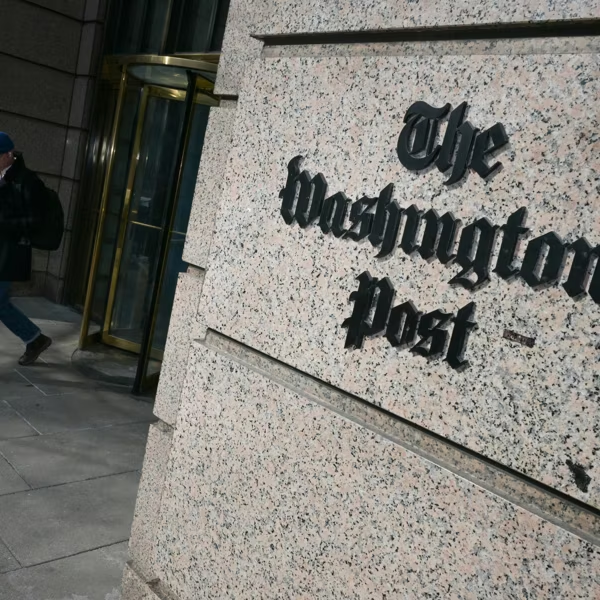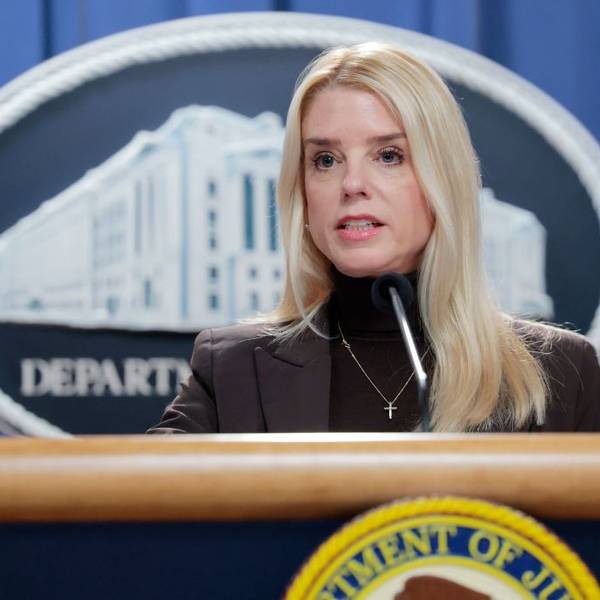Up until recently, it was an almost unanimous view among prosecutors and former prosecutors - be they liberal or conservative, Democrat or Republican - politics has nothing to do with the prosecution of corporate and white-collar crime.
That day is now long gone.
Former Alabama Governor Donald Siegelman, Texas oilman Oscar Wyatt, and Michigan lawyer Geoffrey Fieger - all are now claiming they are victims of what the Justice Department and a long list of former prosecutors say rarely if ever happens - politically motivated criminal prosecutions.
Fieger was indicted in Detroit last month on charges of making illegal campaign contributions to the Presidential campaign of John Edwards.
Federal officials alleged that Fieger and an associate illegally raised $127,000 for the Edwards campaign through conduit contributions - contributions gathered by pressuring underlings and family members to "max out" to Edwards - make the maximum $2,000 contribution - and then promising that the law firm would reimburse them.
Today, Fieger's lawyers, led by Wyoming trial lawyer Gerry Spence, submitted a brief calling on a federal judge in Detroit to dismiss the case on the grounds that the prosecution is "selective" and "vindictive."
The lawyers argue that the Justice Department has been "hijacked" by Republican political operatives and "turned into a weapon to silence political dissidents like Mr. Fieger and others threatening the Republican stronghold in this country."
Fieger's attorneys say they plan to prove that the Department has been converted into "a militia arm of the White House."
Fieger, a well-known Michigan Democrat, gained prominence in the 1990s as the lawyer for Dr. Jack Kevorkian and when he ran unsuccessfully for Governor of Michigan in 1998.
In the presidential primary of 2000, Fieger says he "encouraged the people of Michigan to vote for John McCain and against Bush which caused droves of Democrats to the polls and gave McCain a win in the Michigan primary."
"The day after the primary, George Bush gave a speech at Lawrence Technological University during which he denounced Mr. Fieger by name no less than four times - referring to him as 'Kevorkian's Attorney,'" according to the brief.
According to Fieger's attorneys, once the political operatives decided to target Fieger, they launched a two year investigation "which reeks of political totalitarianism."
In November of 2005, "Alberto Gonzales began the crusade. . .personally authorizing nearly 100 federal agents to conduct a night time raid on the law offices of Fieger, Fieger, Kenney & Johnson in Southfield, Michigan."
"Federal agents simultaneously arrived at the homes of the firm's employees demanding to know whether they contributed to the John Edwards campaign, and if so, why," the lawyers write.
In the brief, Fieger's lawyers are highly critical of former Public Integrity Section chief Noel Hillman. Hillman currently is a federal judge in New Jersey.
Fieger's lawyers allege that outgoing White House political operative Karl Rove "was able to manipulate the Department's Public Integrity Section through Noel Hillman - a political appointee who was responsible for numerous politically motivated investigations including the frivolous prosecution of notable Detroit Democrat Carl Marlinga and the four-year long multi-million dollar overreaching investigation of Edward McNamara."
Fieger's lawyers do a press clipping-like recitation of the U.S. Attorney's scandal, the Don Siegelman prosecution, and what they claim are other politically motivated prosecutions in Michigan.
But Fieger's lawyers make no mention of the fact that Hillman was the chief prosecutor in the case that led to the imprisonment of Republican lobbyist Jack Abramoff.
Instead, Fieger's attorneys cite a recent study by academics Donald Shields and John Cragan which examined the number of public corruption investigations and prosecutions brought by the Bush Justice Department under Hillman's leadership at Public Integrity - between January 2001 and December 2006.
Shields and Cragan conclude that "the offices of the U.S. Attorneys across the nation investigate seven times as many Democratic officials as they investigate Republican officials, a number that exceeds even the racial profiling of African Americans in traffic stops."
Shields and Cragan, conclude that the current administration "appears to be the first to have engaged in political profiling."
Fieger argues he has been "selectively and vindictively" targeted.
"Although 99% of campaign finance dispute are resolved civilly by the Federal Election Commission, the Justice Department has selected Mr. Fieger and his firm as the target of the largest campaign finance investigation in the history of America," Fieger's lawyers write. "Inexplicably, however, the United States Attorney's Manual for Election Crimes recognizes that criminal prosecution of campaign funding violations is a rare occurrence."
The U.S. Attorney's Manual says that campaign finance violations "are either not crimes or do not warrant criminal prosecution" and acknowledges that the vast majority of statutory violations should be "handled non-criminally by the Federal Election Commission under the statute's civil enforcement provision."
The reason?
Because campaign funding prosecutions "often tend to be politically sensitive, and maintaining national investigative standards helps preserve the appearance of complete enforcement impartiality."
The Fieger brief lists 21 cases with fact patterns similar to Fieger's but that were resolved without a criminal prosecution.
The FEC "routinely handles conduit contribution cases through civil settlement including cases involving substantially higher dollar amounts than those at issue here," Fieger's lawyers argue in the brief.
(c) 2007 Corporate Crime Reporter



